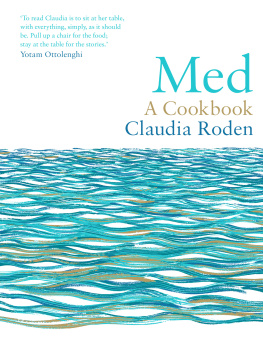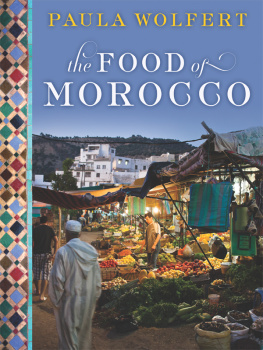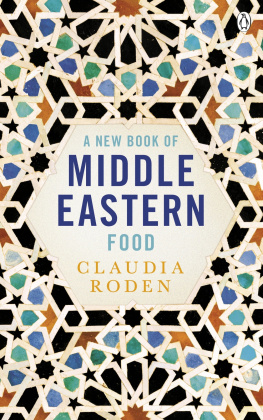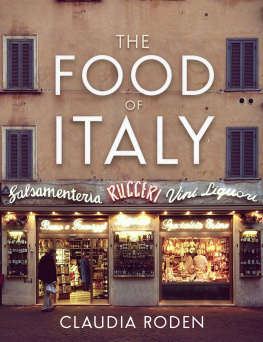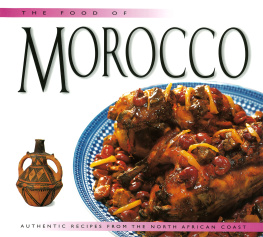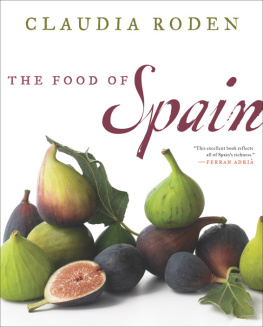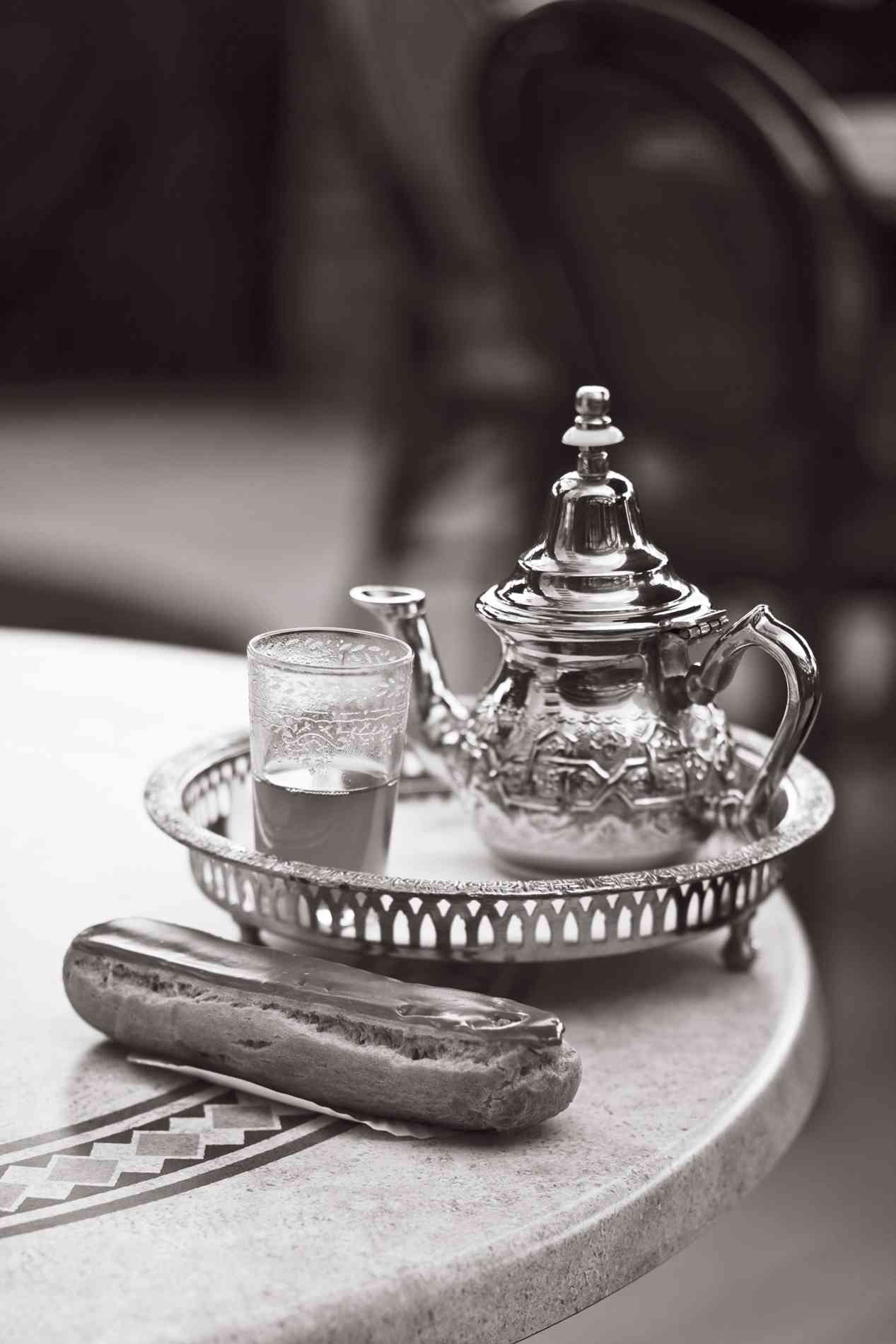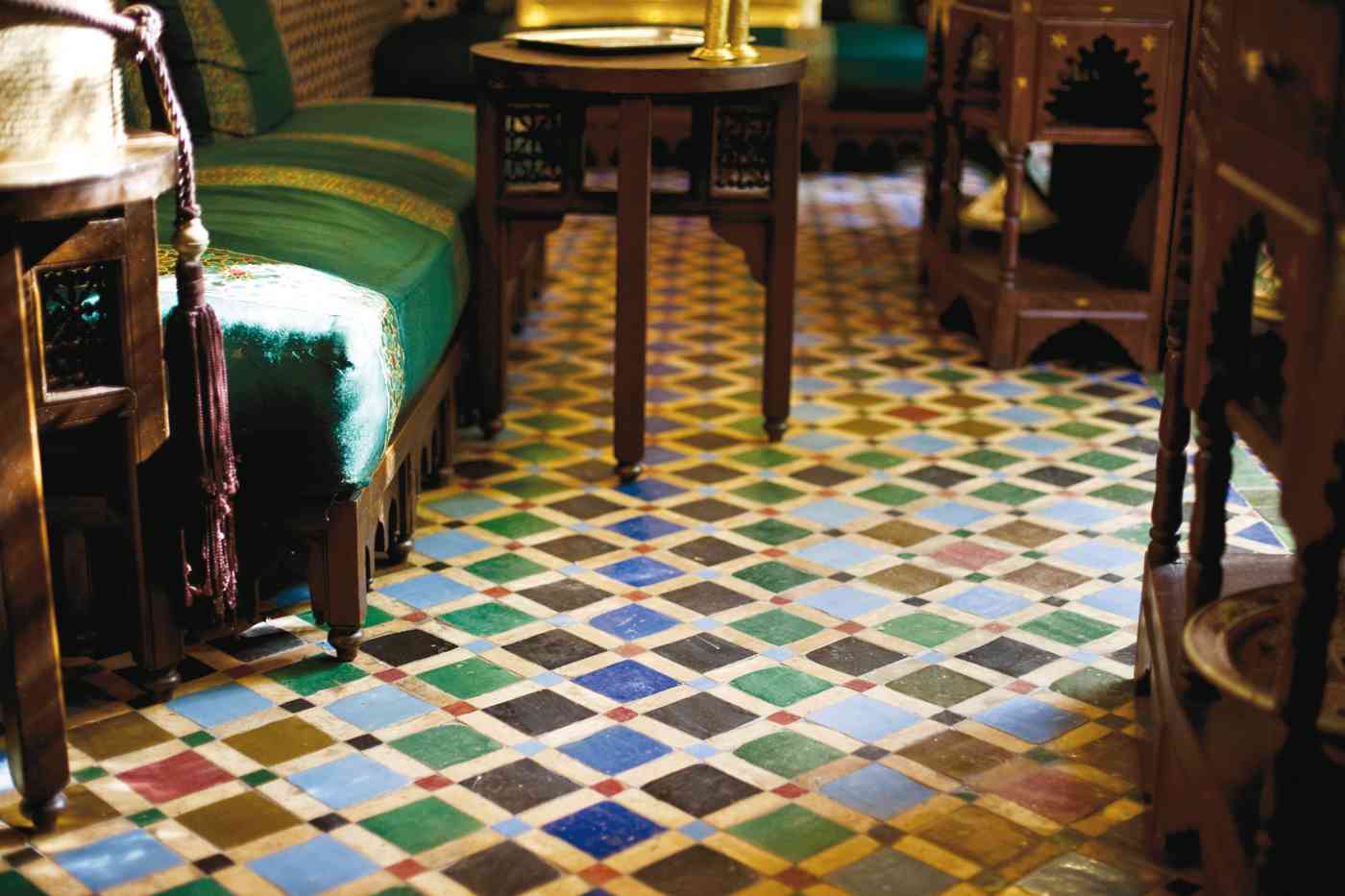
INTRODUCTION

If one loses ones way in Morocco, civilization
vanishes as though it were a magic carpet rolled up
by a Djinn it is a good thing to begin with such
a mishap, not only because it develops the fatalism
necessary to the enjoyment of Africa, but because
it lets one at once into the mysterious heart of the
country: a country so deeply conditioned by its
miles and miles of uncitied wilderness that
until one has known the wilderness, one
cannot begin to understand the cities.
edith wharton





To touch the past with ones hands is realized only in dreams, and in Morocco the dream-feeling envelops one at every step.

Edith Wharton wrote those words more than ninety years ago. And fifty years ago, when I first set foot in Morocco, there could not have been a better description of what I felt. I came as a nineteen-year-old beatnik. I had read the amazing novels and stories of Paul Bowles set in Moroccolingered over his fine renditions of labyrinthine medinas and inscrutable utterances, not to mention his frightening dramatizations of the mysteries and adventures that may befall the stranger around every corner. I had come to an exotic land in search of The Other. I was, I thought, prepared for most anything.
I soon discovered that it was I who was actually the other. And as I explored, made my way through the narrow streets of the medina of Tangier, it was not the kind of adventures described by Bowles that befell me, but something else I was not prepared for: the seductions of Moroccan cuisine. These seductions did not creep up on me slowly, but hit me square in the face almost at once. The sharp scent of cumin on the air. Passing by a community oven and catching the scent of anise and freshly baking bread. The street smells of grilling skewered meats. Whiffs of pungently spiced fried fresh sardines. The unique aroma of chickpea flour being slowly baked with olive oil and eggs to make a glistening flan in a wood-fired oven. And at dusk, during the month of Ramadan, the surprise of watching as a voluptuous thick soup fragrantly seasoned with sweet spices was portioned out to people standing in line in the Grand Socco, the central marketplace, after the cannon in the Port of Tangier had been fired to mark the end of that days fast.
Soon, at the homes of Moroccan friends, I tasted the more refined dishes: a pyramid of light, airy couscous topped with caramelized onions, raisins, and almonds; a bastila , pastry stuffed with dark pigeon meat, eggs, spices, and ground almonds and fried crisp; chickens prepared a half dozen different ways with preserved lemons and olives. The cuisine that was revealed changed my life. I became obsessed with learning everything I could about it. And the more deeply I explored, the more intensely I came to feel that this was the cuisine for me.
This book is a distillation of everything I know about Moroccan cuisine, everything I have learned about it during my fifty-year love affair with that country and its food. I have spent my professional life exploring the cuisines of the Mediterranean, and my fieldwork has taken me from Spain to Turkey, from France to Tunisia, and to most every country and island in between. But always I have found myself coming back to Morocco, haunted by the tastes and aromas of the inimitable food that enveloped me through my early sojourns in Tangier.
I have written about this cuisine before, and I stand by my earlier book, still in print after more than thirty-five years. In that work, I presented Moroccan cooking as a prism through which to view an exotic foreign land, a gateway through which one could enter its culture. This book is different. I know so much more now, understand the cuisine so much better. I have added more than a hundred previously uncollected recipes to the earlier ones and placed a greater emphasis on the whys and wherefores of Moroccan cooking techniques.
Please note that I refer to previously uncollected, not to new. This is because, with only two exceptions, you will find no new recipes here in the sense that contemporary Moroccan chefs use the word. There has been a movement among them to rethink their national cuisine, to reconceive it and create new dishes. I respect their efforts, but I do not deal in invented dishes. My interest has always been in the real food that real people prepare and eat. The main task for me has always been to uncover these old dishes and figure out ways to reproduce them as authentically as possible in a modern American kitchen.
Morocco is a large country; its spell is great, its magic huge, its cuisine diverse. I make no claim to have uncovered all its culinary glories. What I bring to you here are simply my favorites, the dishes I like best and continue to cook. Because this is a personal collection, I cant guarantee youll like every single one of my choices. My best advice is to look through the recipes, pick out ones you think you will like, and then immerse yourself in those.
Fifty years ago, I found the Morocco of Edith Wharton and Paul Bowles, but today I find a very different place. When I first visited, only ten percent of the population lived in cities. Today its closer to eighty percent. This has brought huge changes. During the seven years that I lived in Morocco, for example, we always prepared our own bread dough at home, then sent it off to the neighborhood wood-fired oven to be baked. People today are busy. Many no longer have time to knead bread dough or prowl the souks in search of ingredients and special spice mixtures. In Casablanca, many middle-class women purchase their food at supermarkets and prepare their tagines in pressure cookers. These are practical solutions, and I understand them. But meals prepared this way lack the full flavor and special seductive quality of Moroccan food at its best.
The American culinary scene has changed greatly too. When I first wrote about Moroccan cooking, earthenware tagines were not available here. Now they are easy to acquire. We have food processors and electric spice grinders and wonderful raw ingredients. Before, grocers would shake their heads when I asked for certain spices; today I usually hear, Yes, we carry that! Organic food and farmers markets are found most everywhere. Great food products are easily obtainable. You can even buy preserved lemons at some markets. And if you cant find what youre looking for, there are superb mail-order sources for most everything you need.

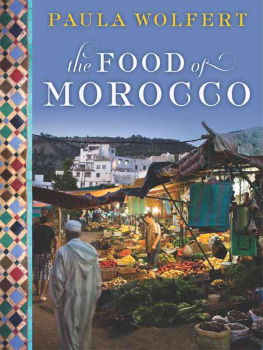
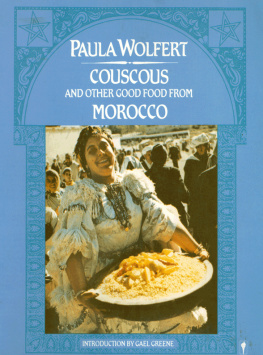
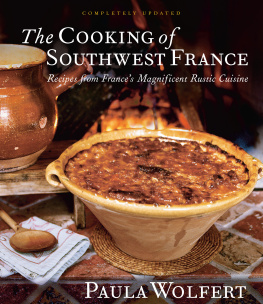
![Claudia Roden - Claudia Rodens Mediterranean: Treasured Recipes from a Lifetime of Travel [A Cookbook]](/uploads/posts/book/289768/thumbs/claudia-roden-claudia-roden-s-mediterranean.jpg)
